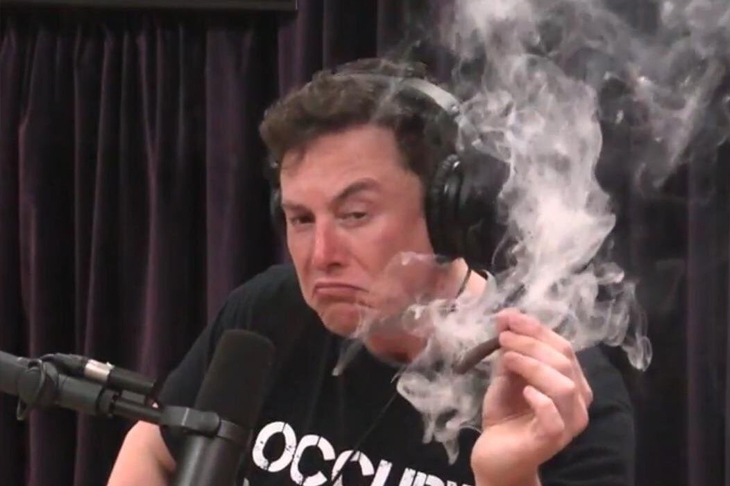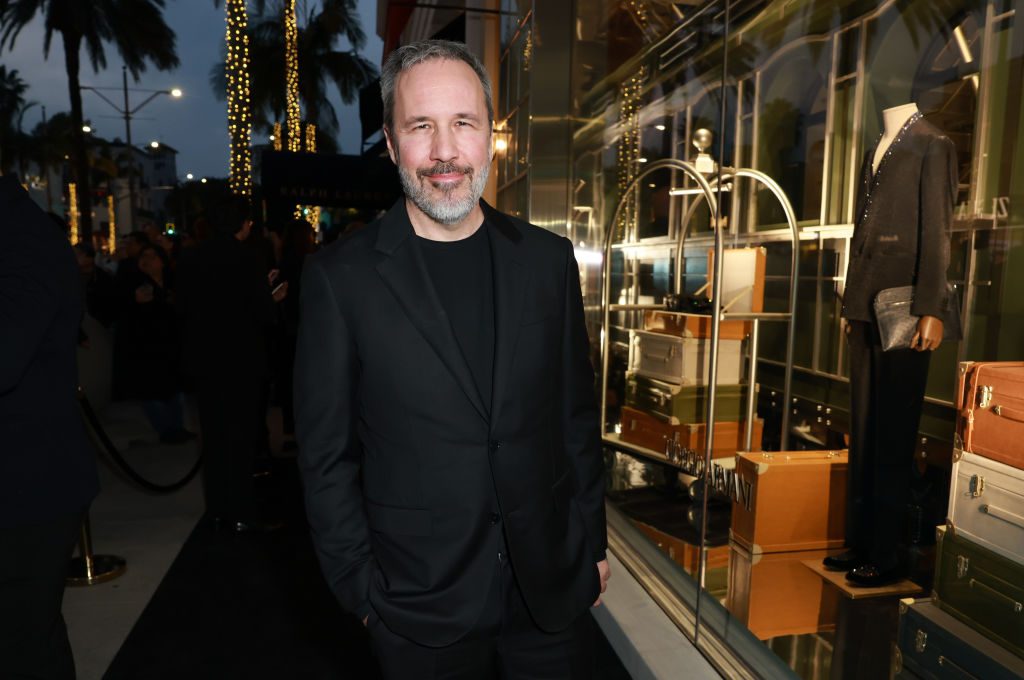The South African apartheid state runs down its final morbid years. Enter a young Elon Musk. Like Mozart, Musk was a child prodigy. Unlike Mozart — who was awarded the Order of the Golden Spur by Pope Clement XIV when he was a teenager — Musk had to go to school.
Young Elon was not a social success. His mother Maye described him as the ‘youngest and smallest guy in his school’. He was an autodidact who enjoyed reading science-fiction 10 hours a day; a kid who it was almost too obvious to bully.
The most traumatic moment came in his early teens. Musk, by this point a skilled enough programmer to make (and sell) video games, was hurled down the stairs by a group of bullies and beaten into unconsciousness.
He sustained injuries severe enough to give him lifelong breathing problems. Last week Musk, now a 47-year-old billionaire, was interviewed on the Joe Rogan podcast.
Musk handled a flamethrower, a samurai sword, a joint and the relentlessly speculative chatter of Rogan. Musk never mentioned his bleak school years, but I couldn’t help but recall them on his behalf when he said: ‘I don’t think you’d necessarily want to be me.’
For a technology tycoon, Elon Musk comes across as appropriately inhuman, like the offspring of an unforgettable night of passion between Dr. Spock and Amazon’s Alexa. The poetic grandness of his ideas — space colonisation, supersonic electric jets, the integration of human brains with AI — are the effusions of the robo-prose of his immutable personality.
This is a candidly eccentric man.
The evening the Rogan interview aired I was at a bar that was unhappily furnished with four jumbo flat-screen televisions. It was late, the hour when the news channels that play only in bars and airport lounges do a review of the next day’s papers. At the end of the discussion two hacks and the newsreader moved on to Musk and that joint. Of course, the end of the discussion during a paper review usually signals bizarre or funny, rather than serious news.
I recognised one of the hacks. He had been a prominent Iraq war booster and essentially the last person in England to like Tony Blair as a person rather than a meme. The other was so young that his beard had a kind of joke shop quality, as if it might be peeled off without much effort. Speaking through the half-smiles that are occasionally visible on the faces of emus, both of the hacks agreed with each other: Elon was a moron. Whoever was really in charge of Tesla needed to pull the plug.
As they spoke that clip of Musk played silently on all four of the bar’s screens. Our luckless Tony Stark, lightly sweating like a machine that’s downloaded hyperhidrosis, eyebrow raised, holding on to Rogan’s joint just too delicately to be convincing.
In an interview where Musk revealed that he’d warned lawmakers — up to and including President Obama — on the near-term dangers of AI (‘It will be used as a weapon’) that joint was leading the news. And not just broadcast. In a rare moment of bipartisanship the headlines were in agreement: ‘How do you solve a problem like Elon?’ asked the LA Times. ‘Elon Musk is hurting Tesla with his bizarre behavior’, thundered CNN. ‘Elon Musk’s Access to Government Secrets Questioned After Bizarre Cannabis Interview’, wrote an Independent reporter who has definitely never smoked cannabis himself. The rest of the coverage was the same.
I reflected that this is why people who are not in the media no longer like or trust ‘the media’, as annoying as such a monolithic and mythic term like ‘the media’ is to the people who actually make up ‘the media’. Whether it can be taken as whole or not, ‘the media’ appears to be unstoppably trivial and good only for drawing blood.
One of Musk’s greatest eccentricities is to speak about his grand ideas enthusiastically. He romantically and cinematically describes his Mars colonisation project in the Asimovian language of space opera, as if it might be the thing that saves the world. Jeff Bezos does not speak like this. Very few intelligent people in real life speak life this.
If anything, most of us undersell anything that appears to seem too perfectly aspirational as jokily banal, or hokily ersatz. In the culture at large, the language of non-galactic and intergalactic human yearning has been ruthlessly appropriated by motivational Instagram memes, cynical mega-corporations and low IQ celebrities.
The unfortunate consequence is to make it easy to mistake the genuine appearance of fully-engaged, eccentric creativity for more of the same advertorial drivel.
Twitter is especially cynical in this regard. For a few years now it has been a zone of agony, where blue tick warlords weaponise the resentful timidity of their unfamous, unimportant followers for use in a querulous forever war. That’s living: checking your phone and being directed to hate somebody you’ve never met by your cultural superiors.
The tendency to dismiss eccentric tinkerers as soon as they express anything outside the norm is a grotesque shame. At last count eccentric tinkerers — not people on Twitter — were responsible for airplanes, cars, personal computers, telephones, antibiotics, electricity and every good book you’ve ever pretended to read.
Regarding Musk, the hacks in the newsroom were in agreement with each other, with Twitter and with the stock market. In other words the journalists were in agreement with the mob and with the Nasdaq utilitarians. Is that where writers should be? Should the goal of a writer be to get liked, retweeted or invited on to the paper review every other Friday evening?
One of the sadder results of the decline of ‘high’ literary culture (try and find 10 people under the age of 40 who know who Gore Vidal is) and all the associated eccentricity that went with it, is a dearth of imaginative punditry. There was once a space in the wider culture for writers to make uncomfortable, knotty remarks. Saying what you really think in a publishing world infused with performative wokeness is not exactly a fast way to make friends, or to get book deals.
Even Martin Amis, laureate of the totally inappropriate interview remark and non-Booker winner because he writes characters who say mean things, is beginning to sound cautious and apologetic these days: ‘I’m like Hugh Hefner, when he started out he was the hero of liberalism and then the culture changed. And then he became a villain of liberalism.’
So it’s left to rich engineers like Musk, or the equally maligned Jungian entrepreneur Jordan Peterson to make the marketplace of ideas eccentric again. For years the anthropologist David Graeber — no doubt a complete oddball himself — has warned that eccentrics are being pushed out of universities: ‘It means we’re taking a very large percentage of the greatest creative talent in our society and telling them to go to hell … The eccentrics have been drummed out of all institutions.’
Eccentrics rarely disappear though. They have a tendency to surface in the most unexpected places. Consider the intellectual and organisational powerhouses behind the election of Donald Trump and the victory of Leave in the Brexit referendum. Orchestrated in turn by Steve Bannon and Dominic Cummings.
You wouldn’t exactly call them normal, would you?

























